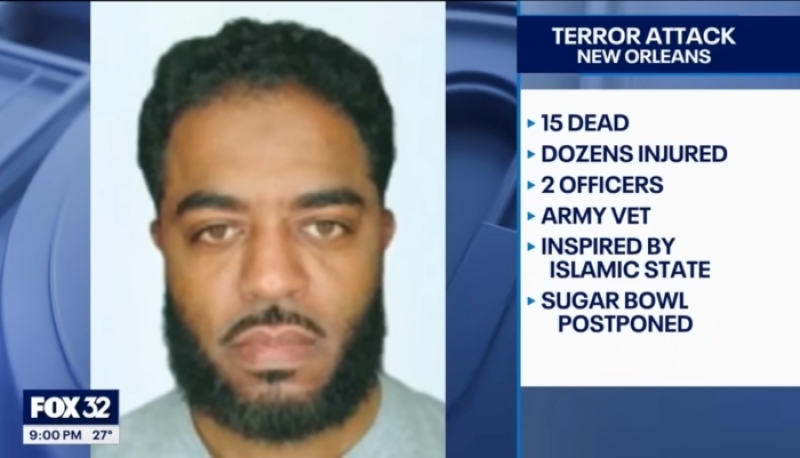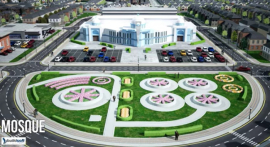
Federal investigators announced on Thursday that the suspect acted alone in the New Year's Day attack on Bourbon Street in New Orleans while being influenced by the Islamic State terror organization.
Shamsud-Din Jabbar, 42, a U.S. Army veteran, is suspected of deliberately driving a pick-up truck into a crowd celebrating the new year, resulting in the deaths of 14 people and injuries to more than 30 others.
In a media briefing, Christopher Raia, deputy assistant director of the FBI's counter-terrorism division, unequivocally stated that the attack was an “act of terrorism.” He described it as “premeditated and an evil act,” and mentioned that investigators had obtained surveillance video of Jabbar placing explosive devices near the crash site.
Raia noted, “Jabbar specifically picked out Bourbon Street,” though they are “not sure why.” He acknowledged that Jabbar “was 100 percent inspired by ISIS,” sharing allegiance to the group through social media posts.
Two improvised explosive devices (IEDs) were found near the crash site, but authorities confirmed they were safely recovered without detonating. Raia indicated that there was no indication of a broader, stating that Jabbar acted independently, inspired by extremist propaganda.
The attack occurred early Wednesday morning, just hours before an explosion outside the Trump International Hotel in Las Vegas, Nevada, involving a Tesla Cybertruck filled with fireworks and camp fuel canisters, which resulted in the death of a suspect inside the vehicle.
The individual who died in the explosion was identified as Matthew Livelsberger, an active-duty U.S. Army soldier previously stationed at Fort Bragg in North Carolina.
Jabbar and Livelsberger both spent time at Fort Bragg, a significant Army base now known as Fort Liberty. However, an official familiar with the investigation stated that there is “no apparent overlap in their assignments there.” The FBI is continuing its investigation into both incidents, but officials assert no evidence suggests a connection between them.
Investigators found that the car-sharing app Turo was used to book both vehicles involved in the incidents in New Orleans and Las Vegas. A Turo spokesperson told The Wall Street Journal that there is no indication the renter in either case had a “criminal background that would have flagged them as a security threat.”

















